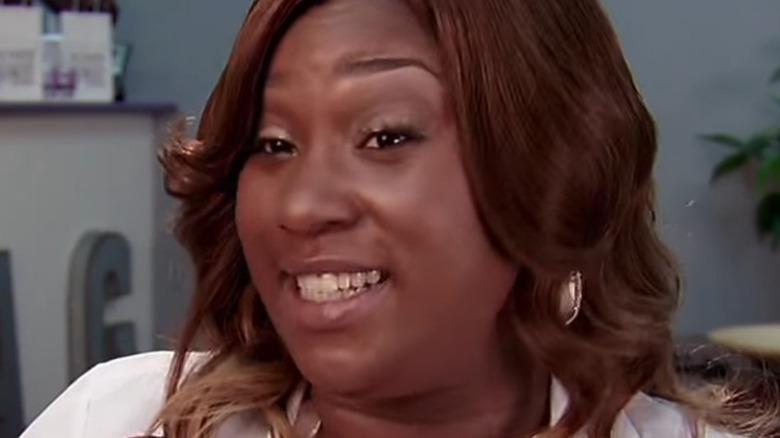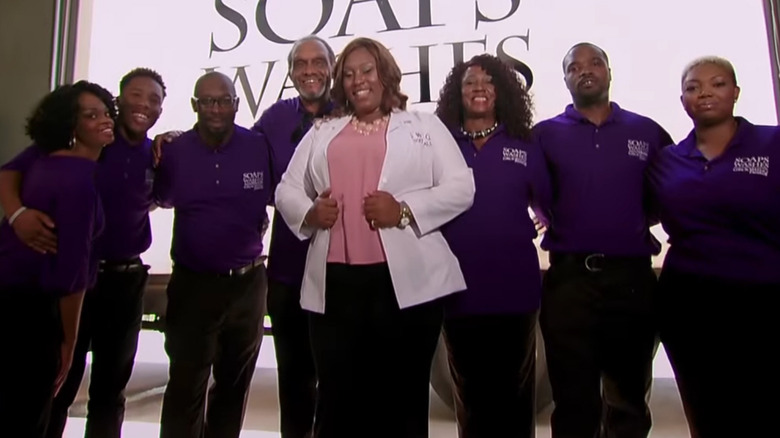Whatever Happened To SWAG Essentials After Shark Tank?
On Season 6, Episode 11 of "Shark Tank," a medical esthetician named Lydia Evans pitches the Sharks on her grooming product brand called S.W.A.G. Essentials. Her company's flagship item is a bar of soap boasting a natural loofah embedded within it, purportedly improving its ability to relieve irritation and exfoliate skin. Central to the brand's marketing is its appeal to men, which she explains came about when her brother initially approached her with the idea to create a cleansing product that might alleviate issues men in particular tend to encounter.
While Evans receives some praise from the Sharks for the sample bars of soap she hands out during their assessment of her investment proposal, none of them ultimately decide to make her an offer, leaving her with no more than the exposure that "Shark Tank" grants to even those that fail to secure funding for their businesses.
Fortunately for Evans, that exposure seems to have paid off — just as it did for SmartPlate, who similarly received no funding during their "Shark Tank" appearance but remain in business today. Currently, S.W.A.G. Essentials, albeit under a different name, is thriving more than five years since its first TV appearance.
SWAG Essentials has greatly expanded its scope
Nowadays, S.W.A.G. Essentials is called SW&G Supply House and sells considerably more than just bars of soap for men, rivaling the successes of businesses like GRIND Basketball that left "Shark Tank" with more funding than they could claim prior to being featured on the show.
Not only does SW&G Supply House now sell products for women, but its scope has expanded well beyond grooming products and into general artisan goods. The first page of its website's section for men's products, for example, consists entirely of bracelets, rings, and necklaces. Of course, the grooming products that built the business remain available as well, including the soap embedded with a loofah sponge that Lydia Evans pitched to the Sharks years ago.
In 2017, CNBC reported that Evans moved her business operations out of her home and into a 3,000-square-foot manufacturing plant. Five years later, SW&G has seemingly grown further beyond that initial expansion, given its wider scope. Evans, then, is a prime example of a business owner who proved she had enough wherewithal to overcome her "Shark Tank" failure and succeed on her own terms.

